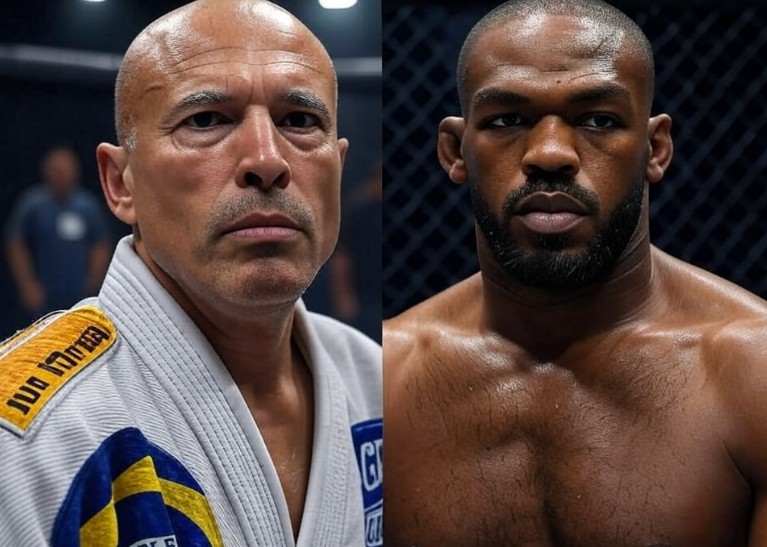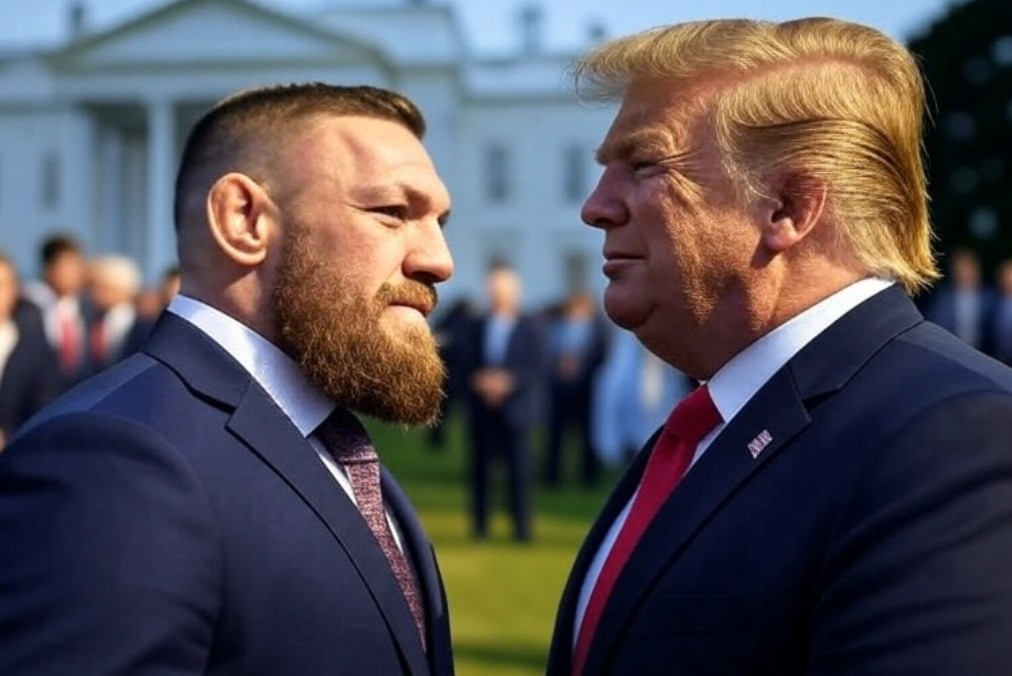Who owns the UFC now? There has been some cash outs in recent times by some people but who actually owns it now? Let us find out today.
The Ultimate Fighting Championship (UFC), a global powerhouse in mixed martial arts (MMA), has evolved from a niche spectacle in 1993 to a multi-billion-dollar enterprise by August 2025. With its octagon hosting over 700 fights and a roster of 578 fighters across 11 weight classes, the UFC stands as the premier MMA promotion.
Ownership of this juggernaut has shifted dramatically over the decades, culminating in a complex structure that reflects corporate mergers, private equity investments, and strategic leadership.
As of this moment, 09:20 PM +03 on August 2, 2025, the UFC is owned and operated by TKO Group Holdings, a majority-owned subsidiary of Endeavor Group Holdings, following a series of transformative deals. This exploration delves into the current ownership, the journey to this point, the financial metrics underpinning the organization, and the key figures shaping its future.
The Evolution of UFC Ownership
The UFC’s ownership story began in 1993 when Art Davie and Rorion Gracie launched the promotion as a tournament to determine the ultimate fighting champion. Initial ownership rested with a small group of founders, but financial struggles led to its acquisition by SEG Inc. in 1997.
The turning point came in 2001 when casino moguls Frank and Lorenzo Fertitta, alongside Dana White, formed Zuffa LLC to purchase the UFC for $2 million. This trio transformed the organization, introducing weight classes, sanctioning by athletic commissions, and the reality series The Ultimate Fighter, which debuted in 2005 and drew 3.1 million viewers for its finale.
By 2016, Zuffa’s success had pushed the UFC’s valuation to $4 billion, prompting the Fertittas and White to seek a buyer.
In July 2016, Endeavor Group Holdings, then known as WME-IMG, acquired the UFC for $4.025 billion in a deal backed by private equity firms Silver Lake Partners, Kohlberg Kravis Roberts (KKR), and MSD Capital. Endeavor, a talent and media agency founded in 2009, held a majority stake, while the equity firms contributed $1.75 billion, with the rest financed through debt.
Dana White retained a 9% stake, valued at approximately $360 million at the time. This acquisition marked the UFC’s entry into a broader entertainment ecosystem, setting the stage for further growth. In 2021, Endeavor took the company public, listing it on the New York Stock Exchange under the ticker symbol EDR, with a market capitalization of $7.5 billion.
The most significant shift occurred in April 2023 when Endeavor announced the merger of the UFC with World Wrestling Entertainment (WWE), forming TKO Group Holdings.
Completed on September 12, 2023, this $21.4 billion deal combined the UFC’s $12.1 billion valuation with WWE’s $9.3 billion, creating a combat sports giant. Endeavor retained a 51% stake in TKO, while WWE shareholders, including Vince McMahon, held 49%. The structure evolved further in 2025 with Endeavor’s privatization, solidifying TKO’s role as the UFC’s parent entity. This journey reflects a blend of entrepreneurial vision and corporate strategy, shaping the ownership landscape as of August 2025.
Current Ownership Structure
As of August 2, 2025, TKO Group Holdings owns and operates the UFC, with Endeavor Group Holdings holding a majority stake. Following the March 2025 privatization of Endeavor in a $25 billion deal with Silver Lake, Endeavor’s ownership in TKO increased to 59%, with the remaining 41% held by public shareholders and other investors. This privatization valued Endeavor’s enterprise at $25 billion, incorporating TKO’s estimated market cap of $27 billion, where the UFC represents the largest revenue-generating asset.
Dana White, the UFC’s president since 2001 and CEO since 2023, retains his 9% stake in TKO, a position he maintained through the 2016 sale and subsequent mergers. His ownership, now worth approximately $2.43 billion based on TKO’s $27 billion valuation, underscores his enduring influence.
The private equity firms—Silver Lake, KKR, and MSD Capital—hold a minority stake, estimated at 15% collectively, diluted from their original positions post-2016 due to the TKO merger and share issuances. The remaining 17% is distributed among institutional investors and public shareholders, reflecting TKO’s status as a publicly traded entity on the NYSE under the ticker TKO.
Who Owns the UFC Now
This ownership structure highlights a tiered hierarchy. Endeavor, led by executive chairman Ari Emanuel, exercises operational control through its 59% stake, while White’s leadership role ensures continuity in the UFC’s day-to-day management. The private equity firms provide financial stability, and public shareholders add liquidity, creating a balanced yet complex ownership model.
Financial Performance and Valuation
The UFC’s financial success underpins its ownership value. In 2023, the UFC generated $1.3 billion in revenue, with an operating income of $759 million, according to internal financial reports. By 2025, revenue projections estimate $2.75 billion, driven by media rights, live events, and new ventures like Zuffa
Boxing, launched on June 23, 2025, with its debut event scheduled for September 13 at Allegiant Stadium. The January 2024 Netflix deal for WWE’s Monday Night Raw, at $5 billion over 10 years ($500 million annually), indirectly boosts TKO’s overall revenue, with UFC negotiations with Disney for a post-2025 deal potentially exceeding $1 billion yearly.
The UFC’s valuation has soared from $4 billion in 2016 to $11.3 billion by March 2025, per internal assessments, reflecting a compound annual growth rate (CAGR) of 14%. The TKO merger added WWE’s value, pushing the combined entity to $27 billion by August 2025. The $25 billion privatization value for Endeavor suggests a premium on TKO’s assets, with the UFC accounting for approximately 40% of this figure due to its consistent profitability.
The UFC’s EBITDA, estimated at $756 million in 2023, is projected to reach $1.1 billion in 2025, supporting a valuation multiple of 10 times earnings, a standard for high-growth sports entities.
Revenue Streams and Economic Impact
The UFC’s revenue diversification reflects its ownership’s strategic vision. Media rights, the largest contributor, generated $702.5 million from January to September 2023, with the ESPN deal (2019-2024) providing $1.5 billion over five years.
Live events contributed $300 million in 2022, with 20 sold-out shows, while sponsorships, including deals with Venum and Anheuser-Busch, added $196 million in 2023. Consumer products, such as apparel and merchandise, brought in $100 million annually by 2025, bolstered by international events in Paris and São Paulo, which added $200 million in 2023.TKO’s broader portfolio enhances this revenue.
The February 2025 acquisition of IMG, On Location Events, and Professional Bull Riders for $3.25 billion in stock expanded revenue streams, with projections estimating $500 million annually from these assets by 2026.
The UFC’s 43 events in 2023, held across 21 cities in 8 countries, drew 18,712 attendees for the Rozenstruik vs. Almeida fight in Charlotte, setting a U.S. fight night attendance record. Pay-per-view buys, averaging 500,000 per event in 2025, generate $400 million yearly, reinforcing the UFC’s economic might.
Key Figures in Ownership
Ari Emanuel, as executive chairman of Endeavor and former CEO of TKO, drives the corporate strategy. His role in the 2016 acquisition and 2023 TKO merger, coupled with a $173.8 million cash-out from the 2025 privatization, underscores his financial stake.
Dana White, with his 9% ownership and $2.43 billion valuation, remains the public face, overseeing 769 events and a fighter roster from 71 countries as of June 2025.
His leadership has grown the UFC from a $2 million purchase to an $11.3 billion asset, with a personal net worth exceeding $500 million in 2019, likely doubling by 2025.The private equity trio—Silver Lake, KKR, and MSD Capital—provide financial backbone.
Silver Lake’s $1.75 billion investment in 2016, paired with KKR and MSD’s contributions, has yielded returns exceeding 500% by 2025. Their minority stakes ensure long-term stability, while public shareholders, numbering in the thousands, add democratic input to TKO’s governance.
Challenges and Future Outlook
Ownership stability faces challenges. The March 2025 $375 million settlement of the “Le vs. Zuffa” antitrust lawsuit, distributing $240-260 million to fighters from 2010-2017, reflects ongoing legal pressures. The UFC’s BJJ promotion, launched on June 25, 2025, aims to diversify revenue but requires $50 million in initial investment. TKO’s $27 billion valuation hinges on maintaining growth, with the Disney deal’s outcome critical by year-end 2025.
Looking ahead, TKO’s 59% Endeavor stake may shift if Silver Lake pursues further consolidation, potentially valuing the UFC at $15 billion independently by 2027. White’s leadership, now 56, suggests a succession plan within five years, impacting ownership dynamics. The UFC’s global reach, with 12 upcoming events in 2025, positions it for continued dominance, provided legal and financial hurdles are navigated.
Ownership in Perspective
As of August 2, 2025, the UFC’s ownership rests with TKO Group Holdings, dominated by Endeavor’s 59% stake, with Dana White’s 9% and private equity’s 15% adding depth.
This structure, forged through decades of growth from $2 million to $11.3 billion, reflects a blend of corporate ambition and individual legacy. The $25 billion Endeavor privatization encapsulates this journey, with the UFC as its beating heart, poised to shape MMA’s future through a unified yet resilient ownership model.


